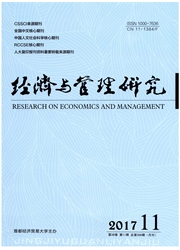

 中文摘要:
中文摘要:
本文运用MS-VAR模型研究中国2003年1月—2015年6月资本项目开放与货币危机间的关系。结果表明:整体而言,资本项目开放与货币危机之间存在正相关关系。在高风险条件下,资本项目开放对货币危机的影响越强;在低风险条件下,适度扩大短期资本开放程度有助于降低货币危机压力。样本期内人民币市场大部分时间都处于低度和中度风险状态,处于高度风险状态的时间较短,这和中国经济整体运行情况基本符合。此外,货币危机发出高风险预警信号的期间,大多伴随着利率汇率的大幅波动、快速频繁的资本流动以及FDI和外债余额的急剧增长,表明资本项目开放存在较高的风险隐患。
 英文摘要:
英文摘要:
This paper researches on the relationship between China's capital account liberalization and currency crises from January 2003 to June 2015 by the MS-VAR model. The result shows that in general capita/ account liberation is positively related to currency crisis. The impacts of capital account liberations get more intense as the risk rises. In the low risk status, moderate liberation of short-term capital account helps to reduce currency crisis pressure. In the sample period, the RMB market is at low risk status or middle risk status at most time and rarely at high risk status. This phenomenon coincides with China's economy conditions, Moreover, when the currency crisis index gives warning, the RMB exchange rate fluctuate sharply, capital flows faster and more frequently, and the FDI and foreign debt increase rapidly, indicating that capital account liberation leads to great risk.
 同期刊论文项目
同期刊论文项目
 同项目期刊论文
同项目期刊论文
 期刊信息
期刊信息
